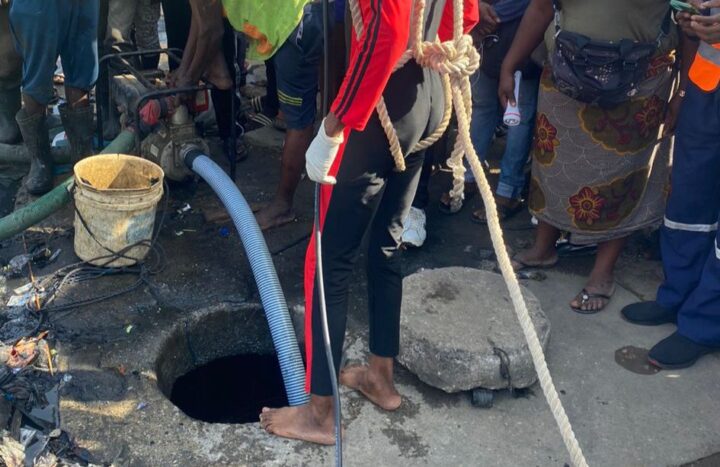On May 6, the Central Bank of Nigeria (CBN) directed all financial institutions to implement a 0.5 percent cybersecurity levy on all electronic transactions.
The new policy is expected to take effect in two weeks, according to a circular, jointly signed by Chibuzor Efobi, CBN’s director of payments system management, and Haruna Mustafa, director of financial policy and regulation.
The CBN said the deduction should be described as “cybersecurity levy”.
The financial regulator also said the deduction and collection of the cybersecurity levy is a sequel to the enactment of the 2024 Cybercrime (prohibition, prevention etc) Amendment Act of 2024.
Advertisement
The apex bank added that the 0.5 percent will go to the national cybersecurity fund which would be administered by the office of the NSA.
For clarity, if you transfer N50,000, a 0.5 percent of the levy — which amounts to N250 — will be deducted from your account.
Similarly, if N100,000 is transferred, N500 will be deducted as the cybersecurity levy, while a transfer of N1 million will attract a levy of N5,000.
Advertisement
In addition, the CBN asked banks and all other financial institutions to do system reconfigurations towards ensuring complete and timely submission of remittance files to the Nigeria Interbank Settlement System (NIBSS) Plc.
The apex bank said commercial, merchant, non-interest and payment service banks, and mobile money operators are expected to reconfigure within four weeks of the circular.
The CBN also asked all other financial institutions such as microfinance banks, primary mortgage banks, and development finance institutions, to reconfigure within eight weeks of the circular.
The cybersecurity levy comes with some exemptions. According to the regulator, the exemptions include:
Advertisement
- Loan disbursements and repayments
- Salary payments
- Intra-account transfers within the same bank or between different banks for the same customer
- Intra-bank transfers between customers of the same bank
- Other financial institutions (OFIs) instructions to their correspondent banks
- Interbank placements
- Banks’ transfers to CBN and vice-versa
- Inter-branch transfers within a bank
- Cheques clearing and settlements
- Letters of credits (LCs)
- Banks recapitalisation related funding only bulk funds movement from collection accounts
- Savings and deposits including transactions involving long-term investments such as treasury bills, bonds, and commercial papers.
- Government social welfare programmes transactions e.g. pension payments.
- Non-profit and charitable transactions including donations to registered non-profit organisations or charities.
- Educational institutions transactions, including tuition payments and other transactions involving schools, universities, or other educational institutions.
- Transactions involving bank’s internal accounts such as suspense accounts, clearing accounts, profit and loss accounts, inter-branch accounts, reserve accounts, nostro and vostro accounts, and escrow accounts.
Speaking on penalties for noncompliance, the CBN said failure to remit the levy is an offence liable “on conviction to a fine of not less than 2 percent of the annual turnover of the defaulting business, amongst others”.
Add a comment






